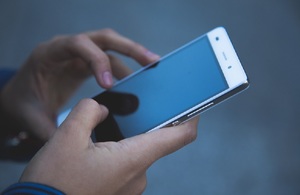NHS COVID-19 app updated to notify fewer contacts to isolate
Public urged to continue using NHS COVID-19 app as changes made will result in fewer close contacts being advised to self-isolate.

- Fewer contacts will be notified by the app following an update to the ‘logic’
- Public urged to continue using NHS COVID-19 app as restrictions lift
- New data shows over 50,000 cases were averted in the first 3 weeks of July – with up to 2,000 cases prevented a day
The public is being urged to continue to use the NHS COVID-19 app as changes made from today (Monday 2 August) will result in fewer contacts being advised to self-isolate following a close contact with a positive case.
As part of a review into the app announced by the Health Secretary, the ‘logic’ which underpins how close contacts are notified will be updated from today.
Currently, for people who input a positive test but are asymptomatic, the app looks for close contacts five days prior to a positive test. This will be updated based on public health advice to look back at contacts 2 days prior to a positive test.
The change will mean fewer contacts that took place when the positive case was unlikely to be at the peak of their infectiousness are advised to self-isolate, reducing the overall number of notifications sent by the app.
This update does not impact the sensitivity of the app, or change the risk threshold, and will result in the same number of high-risk contacts being advised to self-isolate.
Health and Social Care Secretary Sajid Javid said:
We want to reduce the disruption that self-isolation can cause for people and businesses, while ensuring we’re protecting those most at risk from this virus. This update to the app will help ensure that we are striking the right balance.
It’s so important that people isolate when asked to do so in order to stop the spread of the virus and protect their communities.
This update comes as new analysis shows the NHS COVID-19 app continues to play a crucial role in breaking chains of transmission, preventing hospitalisations and saving lives.
New analysis from leading scientists shows that in the first 3 weeks of July, as cases were exponentially rising, the app averted up to 2,000 cases per day, and over 50,000 cases of COVID-19 including chains of transmission assuming 60% compliance with instructions to self-isolate. This is estimated to have prevented 1,600 hospitalisations.
It also shows the app reduces the spread of COVID-19 by around 4.3% each week, and for every 200 to 250 tests entered and shared in the app one person is prevented from being hospitalised from the virus.
Usage remains high, with around 40% of the eligible population regularly using the app and around 50% of all reported tests being inputted.
The government is urging the public to continue using the NHS COVID-19 app. Around 1 in 3 people experience this virus without symptoms and, even if you are fully vaccinated, it is possible that you could be unwittingly carrying and spreading the virus, creating a chain of transmission that could have someone vulnerable to the virus at the end of it.
Dr Jenny Harries, CEO of UK Health Security Agency, said:
The NHS COVID-19 app is a really practical example of how technology can be used to fight the biggest challenges we face in protecting and improving our health.
The app is the simplest, easiest, and fastest way to find out whether you have been exposed to the virus, and it has saved thousands of lives over the course of this pandemic.
I strongly encourage everyone, even those fully vaccinated, to continue using the app. It is a lifesaving tool that helps us to stay safe and to protect those closest to us as we return to a more familiar way of life.
The app remains the fastest way to know if you have been at risk, and app users will only be advised to isolate if they have come into close contact with someone who has tested positive for COVID-19.
From 16 August, fully vaccinated contacts in England will be exempt from isolation and instead will be advised to take a PCR test. Those who are not fully vaccinated will still be required to isolate, and it will remain a legal obligation to isolate if you test positive for COVID-19.
Background information
The app works with a team of independent scientific advisers lead by Christophe Fraser from Oxford University’s Pathogen Dynamics Group at the Big Data Institute. These recent findings are published on their blog and a paper is expected to follow.
Read an explanation of the risk algorithm of the NHS COVID-19 app.